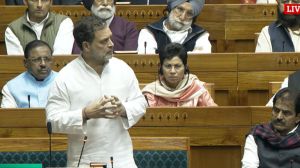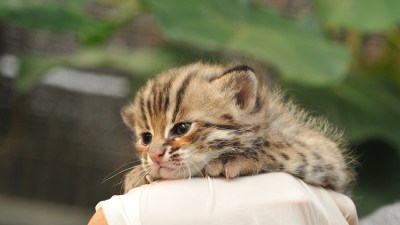‘India’s dairy sector fastest growing in the world, expanded 70% in 11 yrs’: Amit Shah
Shah said under the White Revolution 2.0, over 75,000 dairy cooperatives will be set up in the country, and every Panchayat will have a cooperative by 2029.
 Shah was addressing a gathering after inaugurating the newly constructed Sabar Dairy Plant facility at Industrial Model Township in Haryana's Rohtak. (Credit: X/@AmitShah)
Shah was addressing a gathering after inaugurating the newly constructed Sabar Dairy Plant facility at Industrial Model Township in Haryana's Rohtak. (Credit: X/@AmitShah)The dairy sector in India has grown by 70 per cent in the 11 years of the BJP rule at the Centre — with milk production increasing from 146 million tonnes in 2014-2015 to 239 million tonnes in 2023-24 — and is now the fastest-growing sector in the world, Union Home Minister Amit Shah Friday said.
Shah, who also holds the cooperation portfolio, said that over the past four years, the ministry, in collaboration with all state governments, has worked to lay a strong foundation of cooperatives.
“I want to assure you that by 2029, not even one Panchayat will be there in the country, which will not have a cooperative society,” Shah said.
Shah said the government has decided to establish three new multi-state cooperative societies for the dairy sector. The first society will focus on ‘animal feed production, disease control and artificial insemination’, the second will promote ‘developing cow dung management models’ and the third will promote ‘circular use of dead cattle remains’.
Addressing a gathering after inaugurating the newly-constructed Sabar Dairy Plant facility at Industrial Model Township in Haryana’s Rohtak, as part of efforts to promote the cooperative sector, Shah said under the White Revolution 2.0, over 75,000 dairy cooperatives will be set up in the country while another 46,000 will be strengthened.
“In the last one year, around 33,000 cooperatives have been registered. The milk production of the indigenous cattle breed has increased from 39 million tonne to 50 million tonne. Our current milk processing capacity is 660 lakh litres per day, and our target is to increase this to 100 million litres by 2028-29,” he said.
As many as eight crore farmers are connected with the dairy sector, and the per capita milk availability, which was earlier 124 grams, is now 471 grams, he said. “In the past 11 years, many changes have taken place in the dairy sector, and because of which, our farmers have been empowered,” Shah added.
On Sabar plant, he said, the Rs 325-crore unit is the country’s largest production facility for curd, buttermilk, and yogurt, with a daily capacity of 150 metric tonnes of curd, 3 lakh litres of buttermilk, 10 lakh litres of yogurt, and 10 metric tonnes of sweets.
Gujarat-headquartered Sabarkantha District Cooperative Milk Producers’ Union is known as Sabar Dairy.
Shah said the plant will meet the needs of the entire National Capital Region and Northern states. The Sabar Dairy serves farmers of Rajasthan, Haryana, Maharashtra, Punjab, Uttar Pradesh and Bihar.
Shah also said that in terms of per capita milk availability, Haryana consistently ranks between first and third place every year.
In his address, Haryana Chief Minister Nayab Singh Saini said the Sabar plant is not just about dairy products, “it is about empowering our farmers, creating thousands of jobs, and energizing the rural economy”.
Saini credited Prime Minister Narendra Modi’s mantra of ‘Sahkar Se Samriddhi’ (prosperity through cooperation) and the establishment of the Ministry of Cooperation in 2021 for revitalizing the cooperative sector.
Haryana, ranked third in the country in milk production, produces 122.2 lakh tonnes annually with a per capita milk availability of 1,105 grams per day. The state is also extending support to farmers through cooperative societies, low-interest loans, timely seed and fertilizer supplies, and insurance and welfare schemes, he said.
Gujarat Vidhan Sabha Speaker Shankarbhai Chaudhary, Union Ministers of State Rao Inderjit Singh and Krishan Pal, Gujarat Minister Bhikhusinh Parmar, Chairman, Sabar Dairy, Shamalbhai B Patel, Amul chairman Ashok Chaudhary and Haryana Minister Arvind Sharma, Haryana BJP president Mohan Lal Badoli were among others present at the event.







